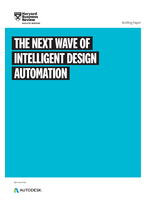IREC Applauds Interconnection Improvement recommended for MA.
Share:
Press Release Summary:
Massachusetts Technical Standards Review Group (TSRG) provided its recommendation to Department of Public Utilities (DPU) regarding appropriate penetration screen to use for Massachusetts' supplemental review process within its interconnection tariff. TSRG recommended DPU use 100% of minimum load as penetration screen rather than current 67%, and IREC commends such careful deliberation of this issue and TSRG's support of moving to 100% of minimum load.
Original Press Release:
Significant Interconnection Improvement Recommended for Massachusetts
Yesterday, Massachusetts took an important step toward joining a handful of other leading states in greatly improving their interconnection procedures, making it easier for small renewable energy systems to connect to the distribution grid, without compromising safety or quality.
The Massachusetts Technical Standards Review Group (TSRG) provided its recommendation to the Department of Public Utilities (DPU) regarding the appropriate penetration screen to use for Massachusetts' supplemental review process within its interconnection tariff. The TSRG recommended that the DPU use 100 percent of minimum load as the penetration screen rather than the current, conservative 67 percent screen. The Interstate Renewable Energy Council, Inc. (IREC) applauds the TSRG for its careful deliberation of the issue and its support of moving to 100 percent of minimum load.
IREC has supported the use of 100 percent of minimum load as the supplemental review penetration screen since Massachusetts began its most recent revision of its interconnection procedure in mid-2012. The question of the appropriate penetration screen was one of only a few unresolved issues that emerged from the tariff revision process. In its order approving the modified tariff in March 2013, the DPU adopted the more conservative screen-67 percent of minimum load-but required the TSRG to spend the next year considering whether or not to increase the screen to 100 percent.
Massachusetts continues to see increasing numbers of interconnection applications as interest in renewable energy keeps growing there, as is true nationwide. Using the 100 percent penetration screen within the supplemental review process should allow utilities to process more applications in less time through an expedited review process, while still ensuring system safety and reliability. The improved procedure should save both utilities and renewable project developers time and money by avoiding unnecessary study.
"Using 100 percent of minimum load as the penetration screen in supplemental review is a best practice nationally," said Erica Schroeder McConnell of Keyes, Fox & Wiedman, LLP, who represents IREC. "We are pleased to see Massachusetts begin the process of joining California, Hawaii, Ohio and the Federal Energy Regulatory Commission with the TSRG's recommendation."Â
The TSRG consists of seven members: four utility representatives as well as three non-utility representatives from the solar and combined head and power industries, and the Massachusetts Department of Energy Resources. All TSRG members are engineers and the DPU has tasked the group with evaluating technical issues related to distributed generation. The TSRG's recommendation with respect to the supplemental review penetration screen reflects its conclusion that using 100 percent of minimum load does not raise technical concerns for the grid.
Although this update to the interconnection tariff may require further public comment, IREC anticipates that the DPU will ultimately accept the TSRG's recommendation and that the Massachusetts utilities will incorporate the 100 percent screen into their individual interconnection tariffs in the near future.
"Massachusetts' commitment to facilitating the interconnection of distributed generation is just one example of its leadership with respect to renewable energy," said McConnell. "IREC commends the Bay State for its efforts and encourages the DPU to move as quickly as possible on yesterday's recommendation."
About IREC
The Interstate Renewable Energy Council (IREC) is a non-profit organization that believes clean energy is critical to achieving a sustainable and economically strong future. To pave this clean energy path, IREC works to expand consumer access to clean energy; generates information and objective analysis grounded in best practices and standards; and leads programs to build a quality clean energy workforce, including a unique credentialing program for renewable energy and energy efficiency training providers and instructors. Since 1982, IREC's programs and policies have benefitted energy consumers, policymakers, utilities and the clean energy industry. As of July 2013, IREC is an accredited American National Standards Developer. Visit www.irecusa.org.




